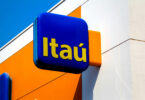Today the Euroclear consortium announced the results of its wholesale central bank digital currency (CBDC) trials with the Banque de France. The group used the CBDC to settle French treasury bond (OAT) transactions.
Other consortium participants included the issuer of French treasuries, Agence France Trésor (AFT), as well as BNP Paribas CIB, Crédit Agricole CIB, HSBC, Societe Generale, with IBM as technology partner using the Hyperledger Fabric enterprise blockchain.
Euroclear concluded that blockchain technology could effectively manage post-trade securities transactions using a CBDC. However, in order to draw definitive conclusions, it believes there need to be trials with real world volumes, and the potential cost savings should to be quantified.
Blockchain offers the potential to reduce settlement cycles to T+1 and potentially T+0. With custodians as blockchain wallet managers, it’s possible to remove the need for reconciliation yielding major cost savings.
However, Euroclear identified challenges such as immature technology, the management of the DLT platform and interoperability with other platforms.
The experiments
At the outset, AFT issued security tokens for the treasury bonds onto the blockchain and the Banque de France issued the CBDC, which was transferred to participant wallets.
The experiment involved settling transactions as delivery versus payment including for issuance, and in primary and secondary markets.
Apart from pure settlement, smart contracts were also used for repo and auto-collateralization. And life cycle events such as coupon payments were executed using smart contracts.
Additionally, the trials included integration with existing infrastructures. For example, a repo transaction used the Target2-Securities (T2S) test environment to transfer securities to the central bank and, in exchange, the central bank paid across CBDC on the blockchain platform.
Euroclear operated one of eight consortia in the Banque de France trials, which were first announced in March 2020. Other consortia that previously reported results included Accenture, HSBC, fund management platform Iznes, Liquidshare, ProsperUS, Seba Bank and Société Générale (SocGen) Forge, which has conducted multiple experiments.






